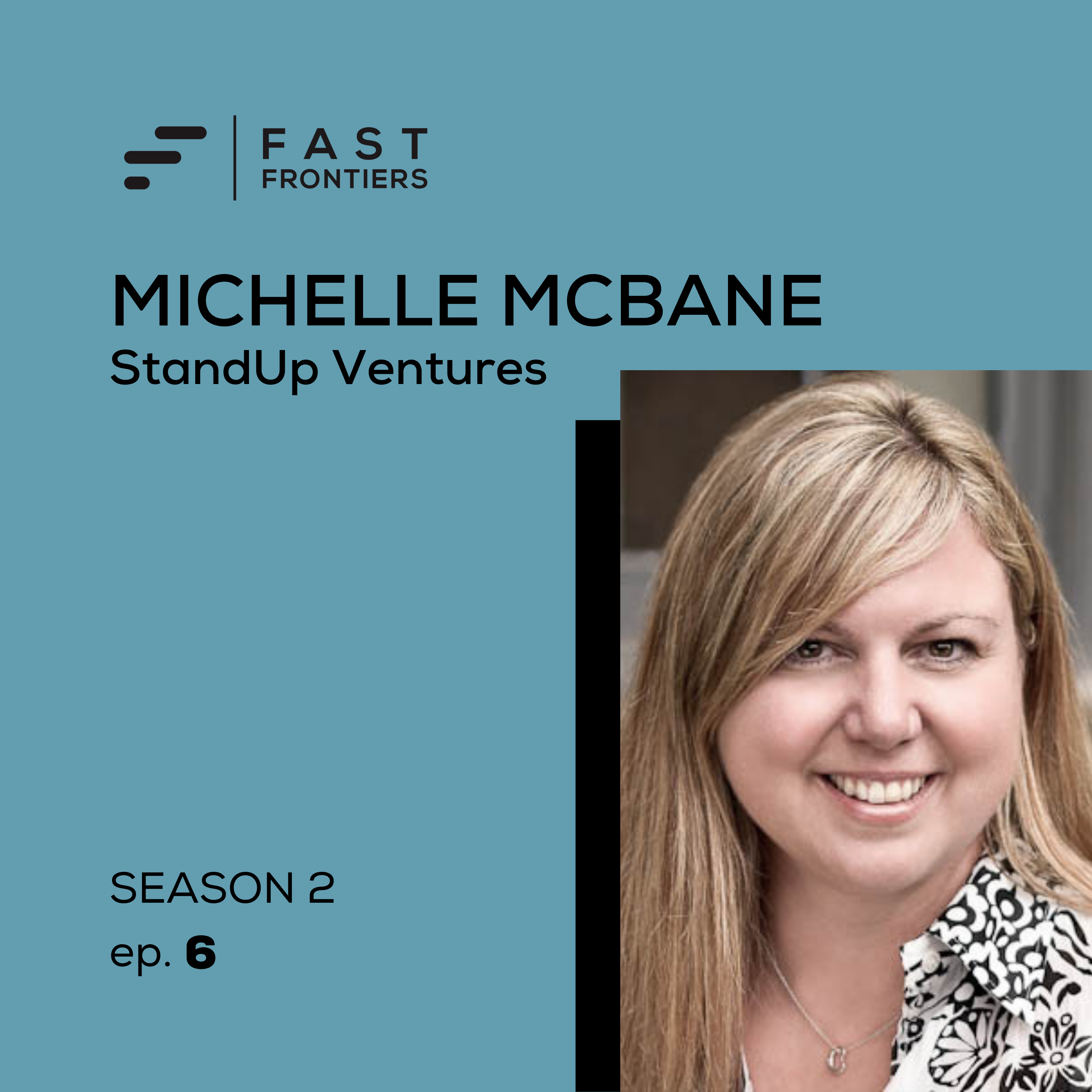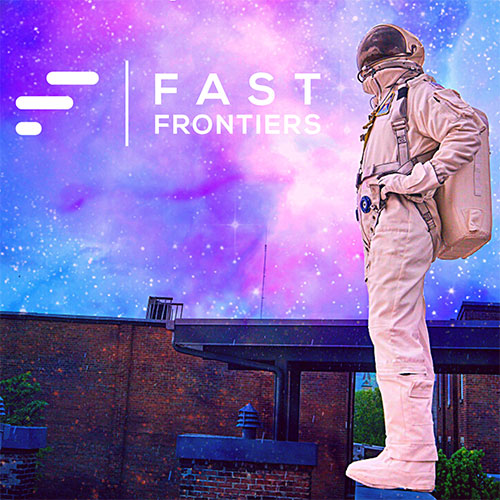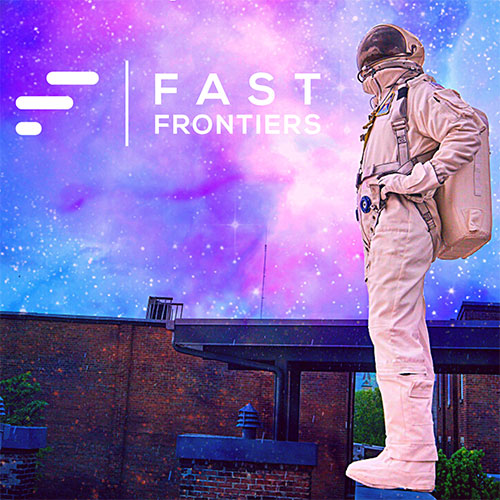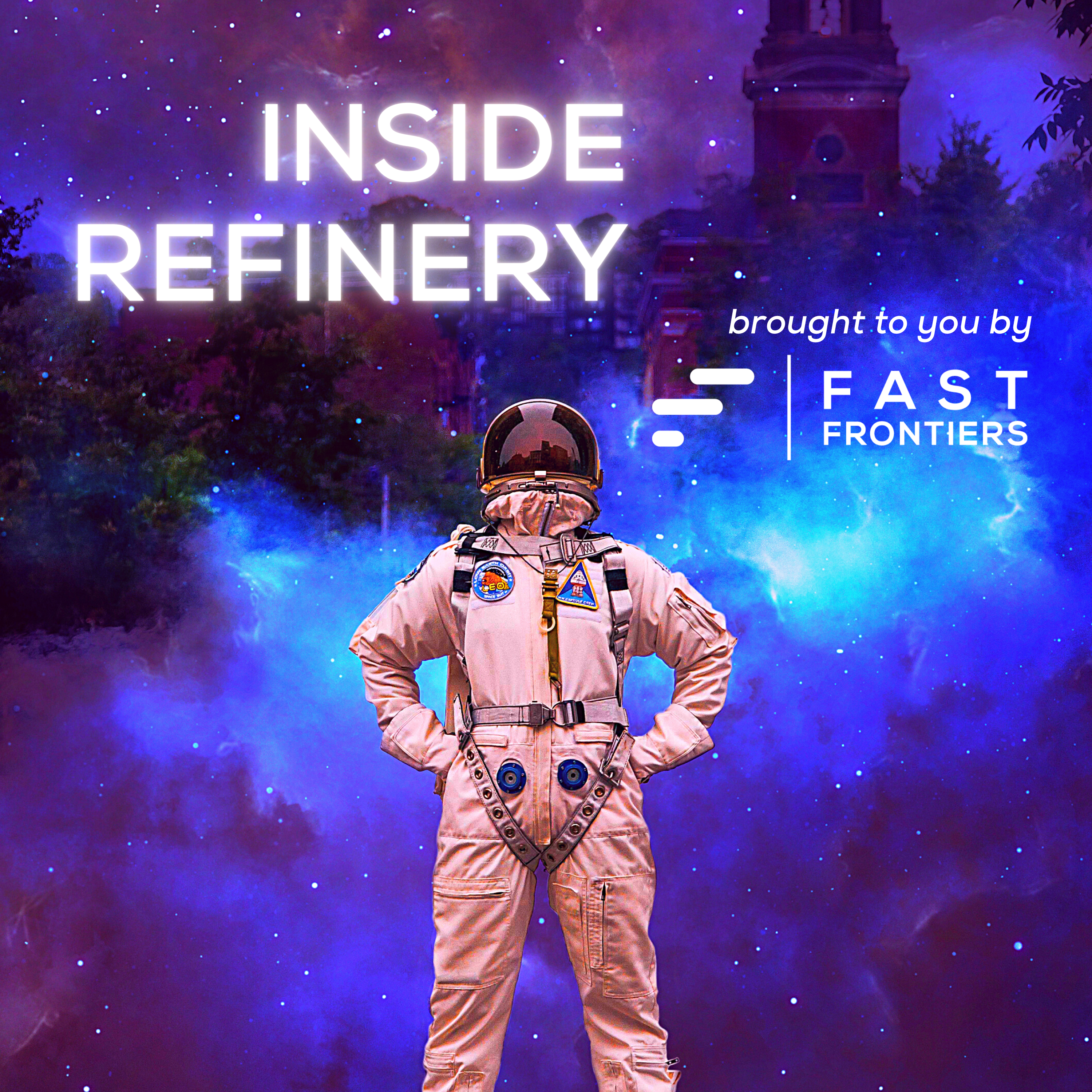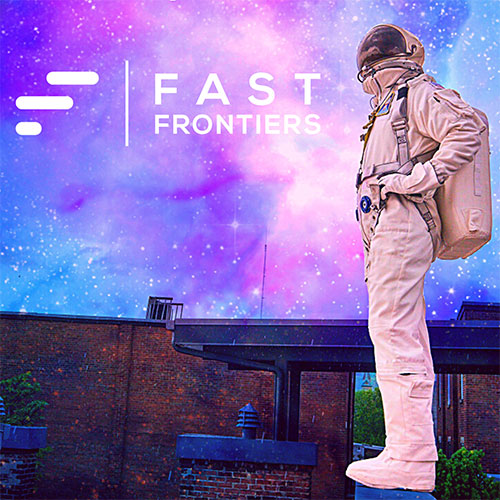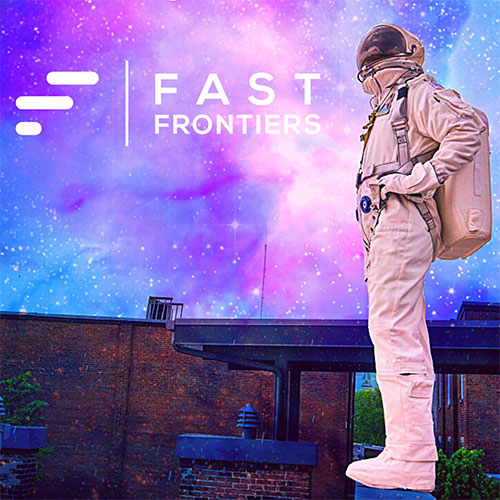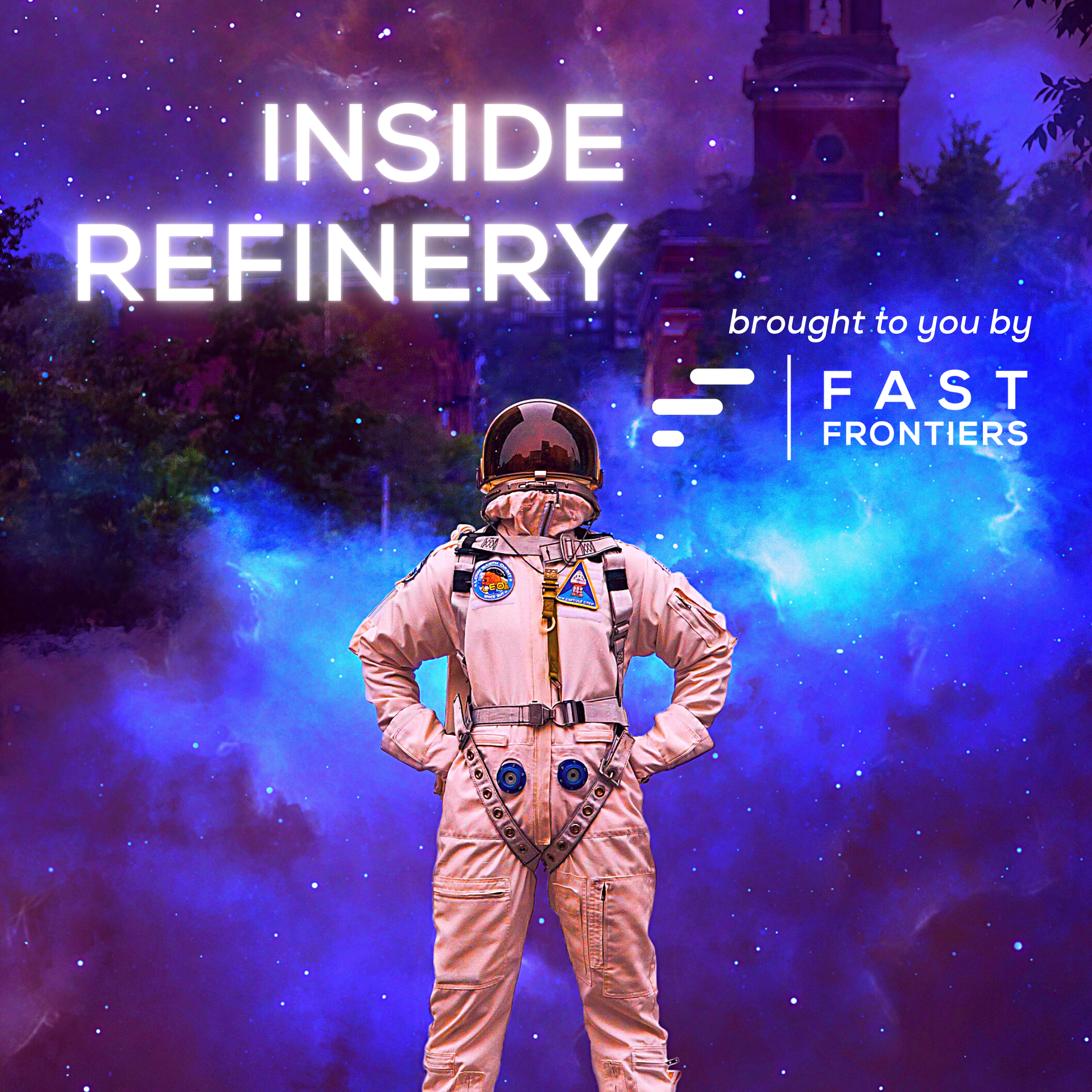S2 Ep 6. Michelle McBane: StandUp Ventures
- 0.5
- 1
- 1.25
- 1.5
- 1.75
- 2
Tim Schigel: Welcome to Fast Frontiers. I am your host, Tim Schigel, managing partner of Refinery Ventures. In this episode, we're bringing you my conversation with Michelle McBane, managing director of StandUp Ventures in Toronto, Canada. In this episode, we're going to dive into the origin of StandUp Ventures, which was formed to address the issue that, without many female founders around, there's a belief that you can't be what you can't see. We're also going to talk about what makes the Toronto and Canadian ecosystems different and unique in terms of the economic benefits with R& D tax credits, and the growing density of talent and engagement among corporations and universities. Michelle McBane is passionate about working with amazing technology entrepreneurs. As the managing director of Standup Ventures, she leads investments in early stage technology companies led or co- led by women founders. Michelle is a skilled business professional with over 25 years of combined operational and venture capital experience. Her background includes 20 years of venture capital investing as well as sales and marketing roles in both engineering and scientific industries. Notable investments include Maple, Figure 1, Sampler, Nudge Rewards, Tealbook, Bridgit, Coconut Software and Profound Medical. Prior to StandUp, Michelle was a venture investor with MaRS IAF, VG Partners, and Primaxis Technology Ventures. She is active in the technology community and volunteers with several organizations in the community, including the Biomedical Zone at Ryerson, and a volunteer with the Next 36, Techstars and CIX, as well as an instructor in the entrepreneurship department at Ryerson University. Please enjoy my conversation with Michelle McBane. I am excited today to be joined by Michelle McBane. We been on a board together of Tealbook in Toronto, which has been a great opportunity to learn and to get to know Michelle. Michelle's the senior investment director at the MaRS Investment Accelerator Fund and managing director of StandUp Ventures, where she leads early stage investing in health and technology companies. And Michelle is on the board or observer of a number of different companies. And you also got your chemical engineering degree from the University of Ottawa, and then a MBA from McMaster. It's been a great privilege to get to know you. I always love to start from the start, which is what drove you to get into early stage tech investing.
Michelle McBane: Yeah, and that's a great story. So, I have to be honest, I fell into it. And sometimes you put what you're looking for out in the universe and it comes at you in a different form. So, I was actually working for DuPont for years, all the different units. If I've learned anything in my career and my life, it's to always work for really great people. And so, I managed to always have amazing leaders and managers who taught me by example, but also would really think about development of their team and of their staff. So, as part of some kind of HR process, DuPont always had some great systems and processes in place. We went through an exercise where you would say, "This is what's next for me. This is the type of work I want to do." And my manager would do the same. And what I didn't realize I described through the process was entrepreneurship. I was in a large company. I am not a specialist. I'm more of a generalist. I like seeing the whole picture versus going really deep down one area. And I said, "Basically, I want to be in a smaller business unit where if we do something over here on the left-hand side, we know in a really timely way, without spending a ton of money and being in a lot of meetings, whether or not it worked. And then, you can course correct." And so, at the same time too, a seed-stage fund that was launched by Royal Bank of Canada called Primaxis Technology Mentors, it was a deep tech sort of fund back in the day, so this was in 2000. And at that time, I didn't know what entrepreneurship was. I didn't know what a subcontinent was. And I didn't know what venture capital was, but there was an opportunity to be seconded to this fund and work with this amazing, magical team that was working in the area of really taking, at the time, technologies coming out of the University of Toronto, putting teams around them and commercializing them. So, I was supposed to go for six months. I ended up staying for two years. The intent was that I would bring the ways of their Wall Street back to DuPont, but I could never go back. Once you've kind of experience that, it's really tough to go back to a large organization. So, at the same time too, DuPont was publicly traded on the Toronto Stock Exchange. But, it's when they went through a bit of a reorg, sold parts to the Koch brothers and all of that. So, the funding we had on the balance sheet to do a lot of things in the innovation area, things like investing in new companies, or licensing or all of that, kind of went away when they privatized as well. And so, a fund I worked with that invested in one of our portfolio companies, a Series A fund, said," Hey, we really liked working with you. We're a healthcare fund. Come and join us. "So, that was the next five years of my life, where I did a fair bit of life science investing, and more series A and B investing as well. But, I think my true love is very much seed. It's working at the early stage, working when things are uncertain, really betting on the team and the talent who are putting everything out there to bring their idea to life. And so, I took a couple of years off with my son, and then in 2010, I joined the MaRS incubator in downtown Toronto, which I'm happy to chat about a bit more. And they had a seed-stage fund that they were working with, so I joined this amazing leader again. His name is Barry Gekiere. Along with the team, we kind of built that into an evergreen fund. That's had top quartile returns at the seed stage. I'll give you the whole story here. And then, four years ago, we were approached by an LP who said, "We love your platform. We love that you've been investing, without thinking about it, in female led ventures." 12% of the portfolio was in female led or co-led ventures. Part of that's because there was women around the table." Here's a commitment from us, go do some deals, and then go raise some more money." So, we spun that out to a private fund called Standup Ventures. I called it Standup after the little girl standing up to the bull on Wall Street. She's everything you want to see in a founder. She's confident. She's courageous. She's curious. And Tealbook was our very first investment out of that fund.
Tim Schigel: Great. I didn't know that. I didn't know that story behind the name. That's good. Wow. I want to get back to the ecosystem a little bit, but first, I mean, the first point you made about DuPont and working for great people, I'm connecting to. What kind of patterns or criteria do you use to assess these founders at this very early stage? And how do you know when you have somebody who kind of is there versus one who's still in development?
Michelle McBane: Yeah, particularly because often we're investing in female led or co-led ventures, often this cohort are first time founders. And so, they haven't always seen the movie before and that's great in some ways, and of course, challenging in other ways. So, what we look for quite often, I would say most of the investments we've made have been founders who are solving a problem they know really well. They're not going out there necessarily to get totally rich, which is why a lot of people, they'll go find an idea, find a problem and build a company around it. And that's certainly one approach. That's worked very well in many areas, but the type of founder we invest in is very much a founder who's lived and breathed the problem. Stephanie's perfect example of that. She ran a services business effectively doing some of what she's doing and was like, "How do I productize this? How do I make procurement and the data around it accessible, and scalable and trusted? And I would say, I think all of our portfolio, the founder has that fundamental insight, so that's the first thing we look for. The other thing we look for is, I'm going to say, collaborative spirit, because, to me, the key role the CEO has, and the founders have, is get people to join the ride. And at the seed stage, there's no data. There's no information. There's no customers half the time. There's no traction. And so, do these people have that ability to go out and recruit people in a competitive talent marketplace to join them and to build something really great? And so, you test that just by conversations. You test that by seeing who they have recruited to date. Have they been able to hire some really great people that you're kind of like, "Wow, how'd they get that person?" You test that in a number of different ways because these companies are only as good as the people that they hire as well and the culture that they build. So, we test for that. I think about it a lot and COVID, and how do you assess that little je ne sais quoi when you're not in their office, kind of feeling the vibe. I haven't crack the code on that yet. I'm about to do my first deal that's fully virtual. And most of our finalists has been deals with folks that we've met over the past six months, nine months before COVID. But, now I'm starting to dig into things or get to know them, so always something new. And full circle back to venture, you're always learning. It's always something new. Day's never the same.
Tim Schigel: Yeah. I always say I work in venture because it keeps me young. You feel like you're living in the future, and that you're just innocent and sort of looking at everything as new. But, many people may know something about the Toronto market, I don't even want to say up and coming, it's been a strong market for a while, but I think it's just getting better and better, has a strong ecosystem.
Michelle McBane: It is.
Tim Schigel: So, can you give us a little overview of what you've seen in terms of the progression of it, and how then MaRS and StandUp fits in within that?
Michelle McBane: Yeah, for sure. So, I mean, 2010, I call them the dark days of VCs. I don't think there were many funds left who were still alive, who'd fundraised and who were successful. A lot of the LPs had stepped away from the asset class back in that period. From an LP perspective too, and I don't know if many people realize this, but some of the world's biggest LPs are actually Canadian, so folks like Teachers, OMERS, CPP. And it's because it's such a public system, so these funds actually have to get $50, $100, $200 million dollars out. And they also have the ability to invest in many of the Tier 1 global funds. And so, they're not always investing in their backyard, full circle to that, because they do have to write a fairly big check. That's actually changing and many are starting to commit back to the ecosystem, but back in 2010, that wasn't the case. And so, folks were pretty scrappy. There was some government support, some programs to kickstart stuff and that started up a number of new franchises. And the reason there was such passion for the ecosystem, and I'll talk more broadly even about Toronto, Waterloo, Ottawa, which we call the corridor, and also Montreal. I have a few investments there. Some really great anchor universities, and hospitals and research institutions. And I think that is globally recognized. If you look at U of T, it ranks always in one of the top 20 institutions in the world. Some really great IP coming out of there. A number of companies started being built, so Shopify is, of course, the big story where you're starting to get that kind of second, third, fourth time founder coming, and doing a deal again and reinvesting in the ecosystem. So, when I think of a healthy ecosystem, there's that early money. People build some great companies. The talents growing in those companies. There's an exit, and you come full circle, and people come back and start a company again. The funds have made money, so they can raise a second fund. Founders are coming back as angel investors. So, that's when you start really seeing the pieces of a sustainable ecosystem and having a base of companies, and universities, hospitals, research hospitals. And the government support, the R&D credit is very important, particularly at the early stage. Particularly in healthcare as well, if you're not going to have revenue in the early days, and you're doing some pretty extensive research, you can actually get $35 back on $100, so 35 cents on the dollar back as a refund. Not a credit per se, you're actually getting that cash back. And so, that's pretty impactful in the early days and the seed-stage days of the company. You actually don't hear companies talk about that as much anymore. So, it's interesting you brought that up because it's huge and it's valuable. But, back in the day, I remember companies were almost relying on that and now it's an important part, but it's not necessarily the reason they do it. There's also a couple of crowns and corporations who do a fair bit to support. So, of course, we're co-investors with BDC, Business Development Bank of Canada, and they're a pretty active fund across sectors. They're also an LP in our fund. And then, Export Development Canada, EDC is also pretty active. So, it's a combination of some pretty strong government support, but also the private capital following.
Tim Schigel: So, when did MaRS start? Tell us a little bit of that origin story.
Michelle McBane: MaRS was founded by a gentleman named Dr. Don Evans. John Evans, sorry. His vision was to recreate something like Kendall Square that you see in Boston. So, a place, so real estate is a big part of it, where you would have natural collisions between the universities, the hospitals, where were located right on University Avenue where U of T is and many of the teaching hospitals, the corporate partners, the entrepreneurs and the VCs, all in one building.
Tim Schigel: That's one of the best entrepreneur buildings I've been in.
Michelle McBane: Yeah. It's a beautiful space. I'm missing going there. And I'm missing bumping into people at the coffee shop. So much happened there, just in those conversations when you'd see someone, you'd go sit down, you'd have that chat. It's really, really powerful. And so, the building has a lot of roots in science as well. It's where insulin was discovered. Banting and Best had their labs there. And the actual building is the Toronto General Hospital. And so, back in 2000, it was supposed to be knocked down, and sold for condos and who knows what else there. And so, Dr. Evans brought together 14 founders, some family offices, foundations and corporate partners, who purchased the land and that allowed them to build what they're building. So, there's now three towers. Folks in there that you'd know, JLABS is there, so Johnson & Johnson's innovation arm. Autodesk is there, PayPal, Facebook, but also many of our startups, a whole bunch of support for ventures at the early stage and some programming around that.
Tim Schigel: And how many startups have now been kind of through that program?
Michelle McBane: Oh gosh, that's a good question. I can speak more for the investment accelerator fund. We've made over 150 investments at the seed stage in Ontario-based companies. Thousands of companies have had some kind of touchpoint through MaRS through the various programming that's in place. And then, as I said, the tenants are large. The other thing we have too is a fairly extensive wet lab space, so kind of that incubation space that you need at the early stage in biotech and drug discovery that you can't necessarily afford to have at scale is there. And you're also able to tap in and be close to the university partners, to the hospital partners that you're working with.
Tim Schigel: So, you were active in MaRS and with the accelerator fund. And then, what triggered, what was the catalyst behind StandUp?
Michelle McBane: So, it's something I had been consciously focusing on. And we were a diverse team at StandUp. Even though it's called an accelerator, it's a seed-stage fund. It's a cohort of founders that I just been actively working with and developing relationships. And as you know, that just feeds on itself, call it my thesis. You're just going to start getting deal flow that looks and feels a certain way. And we all, I think, worked really, really well together. There was a level of trust that was just there from the get-go. Staff would say, "Michelle had my back." Call that what it is, but there's a comfort level and a trust that can happen pretty quickly. And I would go all out for these founders and they'd go all out for us, so it just started feeding on itself. Again, there weren't many female founders, four or five years ago even. And so, there's a fundamental belief that you can't be what you can't see. And so, what we wanted to do was also create a fund that first demonstrated that you can get venture rates of return or better, under this thesis. Change the makeup of the company early on if you have a diverse team at the leadership level. So, like hires like, especially at the seed stage. And so, if you're all one demographic, you're going to hire your friends who all look and feel like you. So, if you have a different type of balance early in the days, and we're just going through our reports now, and that's proven to be true, particularly when it's a female CEO. We invest in ventures as long as there's a woman at the C-suite who owns as much equity as the other co-founders. That checks our box because we also want to make sure that women are participating in the wealth creation that's happening in this innovation ecosystem. And I know Carta did a study a year or two ago, said that, I think, less than 10% of persons on the cap table, so that includes angel investor, venture partners and founders, were women. And so, that means that there's a lot of people not getting, and generating and benefiting from the wealth that you're creating in high-growth ventures. So, that was one part and we had some success, so it's been great. Folks really believed in what we're doing. I think we're still in the first to second, honestly, to use a baseball analogy. We just published a blog post with the data from the women in VC Slack group that I'm happy to share. And it's still early days. And a lot of women are starting their own funds, be it operators who are raising microphones or partners who are spinning out of some of the larger funds and raising their own funds. And so, they're starting to see a success as well. And it doesn't mean that they have the same gender lens that we specifically do, but there's some pretty strong data that shows that you'll probably get more female founders funded if there are more women in VC.
Tim Schigel: Yeah. I'm familiar with a number of them that I had interacted with in the past, women-led venture funds. And it definitely seems like there could be a lot more learning to happen between them.
Michelle McBane: Yes. And that's happening too. Well. I'll tell you. I was at All Raise last week, virtually. So, first of all, I think it was one of the bests conferences I ever attended, I have to be honest, let alone being virtual. So, they did so many things right. And they're definitely creating a cohort and a group of women at all stages in their venture career and all levels, just supporting each other. It's happening in a way that didn't happen before. The networking, using some of these platforms, has been outstanding. So, it's fascinating to me. I think conferences are going to change fundamentally even when COVID is over. And my view is that it should be sort of a hybrid thing where you use these platforms to get those amazing connections initially, and then you go to the room at the conference center and you make a point of meeting in person.
Tim Schigel: Yeah. That's a great point because oftentimes when you go to the conferences, especially if they're big and spread out, it's just a logistics problem. You can't go to this one and that one. Online, you can do that quickly, and then decide, "I want a deep dive with this specific group," or something. That's great idea.
Michelle McBane: Yeah, that's your next business idea.
Tim Schigel: So, as we think of kind of turning more towards the future now, in terms of the future of your ecosystem as well as your focus for your fund, for StandUp, and women in venture, I love the quote you gave, "You can't be what you can't see." So, I highlighted that, for sure. So, tell me what you see in the next 10 years.
Michelle McBane: Yeah. Great question. So, I was just chatting with someone about this before. So, one of the portfolio companies, Avaya, the founder, his company was acquired by a large public company, so he's going there for two years. And I'm like, "So, what are you going to do next? Going to learn for two years?" Young guy, he's going to learn a lot from the CEO of that organization. But, he's coming back again to do something, and he's picked one founder in our portfolio in particular and is like, "She and I are going to do something." I'm like, "All right. Well, I'll write you a check." And so, you're going to see these teams coming together much more consistently, second and third time founders. I even see one of our portfolio companies who developed a second product, the first product didn't have a sort of a recurring revenue model, the second one does. They just pop it in, into their sales team. And they go like this, you learn so much the first time. So, I'm excited to see that sort of muscle memory kind of really coming at it and people doing their next big thing. I think so many of them can't wait to go back, and do something again and launch it again. So, I think we're just going to see more and more sustainability. I think the other, I didn't talk a lot about Waterloo, but we invest a fair bit there as well. University of Waterloo is there, really well-recognized. Y Combinator probably usually has a quarter of their cohort coming out of founders who went there, highly regarded engineering program. So, you're seeing those ecosystems maturing. I see a lot of hope in Montreal. I think there's some amazing talent there and there's really diverse talent, so people from all over the world. One of the companies I've invested in, one of the founders is from an African country and the other founder is from France. So, you're seeing that whole diverse piece all coming together. And those folks, again, can recruit anyone they want to recruit because they're building these really sustainable technologies. We're seeing that in Tealbook. She's punching well above her weight in the folks that she can recruit because people want to be there. They want to be part of that culture. And again, back to they see someone like them on the website in a leadership role, and so they feel that it's probably a more balanced organization that's going to serve them better. So, I think we're going to see a lot more of that. And again, there's still the numbers, the data shows there's been some progression, but we're still not a critical mass, so we're going to keep chugging away. But, part of the portfolio's goal is to have some really great stories. Back to the little girl standing up to the bull, having the role models. And so, I met these two amazing, young founders, straight out of university yesterday, and I'm able to make these connections for them to the founders that I know. And that's just going to feed itself. I think that's what has to happen.
Tim Schigel: Yeah. That's super important for all of us, but especially when you're young, get connected to somebody who you could look up to, who's done it already and to see, "Wow, they're human." And I think I see that a lot. I think about entrepreneurs in the Midwest, because they read about Silicon Valley entrepreneurs, who might be on a cover of Fast Company or whatever, and they don't realize that it almost kind of makes them into superheroes and fictional characters than real people. So, what's unique about your ecosystem, the Toronto ecosystem? What other advantages would you say entrepreneurs or startups have because their roots are from?
Michelle McBane: So, in the way Silicon Valley has, you see the picture of the show Silicon Valley, all the tech companies are all really close by, we have corporate Canada in Toronto. And they have been a big part of the innovation economy. And you'll see corporations coming in and out of innovation programs. They've been pretty steady at that. And so, that includes funding, but it includes being a first customer, which is super important. And it includes talent who could be more senior talent, or board members or advisors who really come around, a company, an opportunity, a founder to really help them go to that next level. So, that's been pretty interesting to see. The talent pool is really growing. You'll see some of our startups are starting to have to compete pretty regularly with Amazon and Google more for a talent perspective. And so, that just demonstrates that the talent is there. It's strong. Where I'd say most folks would say we're a bit weaker is on that true scaling stage, B C, D, E kind of thing, and finding in that sales talent. That's sort of where the gap is. So, I would say we don't have a ton of large scale-ups yet. Shopify is, of course, the big success story. There's a number of companies who've raised $100, $200 million dollars, and so they're well on their way. But, we don't have a ton of the other pieces that's just going to generate more, and more and more of the ecosystem. But, you asked me what it was like 10 years ago, you'd go to an event and there was a hundred people there. And I knew everyone. And now I go to events, and they're a thousand people events, and I am older than I used to be, and they're all getting younger and I don't know them all, but there's still that whole excitement about building something special.
Tim Schigel: Well, I look forward to coming up for the next big in-person event, in the summer would be the better. Thank you so much for sharing, Michelle.
Michelle McBane: My pleasure.
Tim Schigel: And if anybody wants to get ahold of you, we'll make sure it's in the show notes.
Michelle McBane: That's great.
Tim Schigel: But, I would highly recommend, any other ecosystem and other regions of the country, if you want to learn about what's happening in Toronto, and with MaRS and with Michelle's fund, StandUp, I'd encourage you to reach out because there's a lot to learn from what you've done there. Thank you.
Michelle McBane: Thank you. Great to see you.
Tim Schigel: Thanks for listening to Fast Frontiers. If you like our show and want to know more, check out our website, fastfrontiers. com. If you enjoyed this episode, please share it with others, and give us a rating and review on your favorite podcast platform. Join us next week when we bring you my conversation with Mackey Craven, partner at OpenView.
DESCRIPTION
Today we're bringing you my conversation with Michelle McBane, managing director of StandUp Ventures in Toronto, Canada. In this episode, we're going to dive into the origin of StandUp Ventures, which was formed to address the issue that, without many female founders around, there's a belief that you can't be what you can't see. We're also going to talk about what makes the Toronto and Canadian ecosystems different and unique in terms of the economic benefits with R&D tax credits, and the growing density of talent and engagement among corporations and universities.
Please click on any related resources below for more information about what we discuss in this episode.
Today's Host

Tim Schigel
Today's Guests


